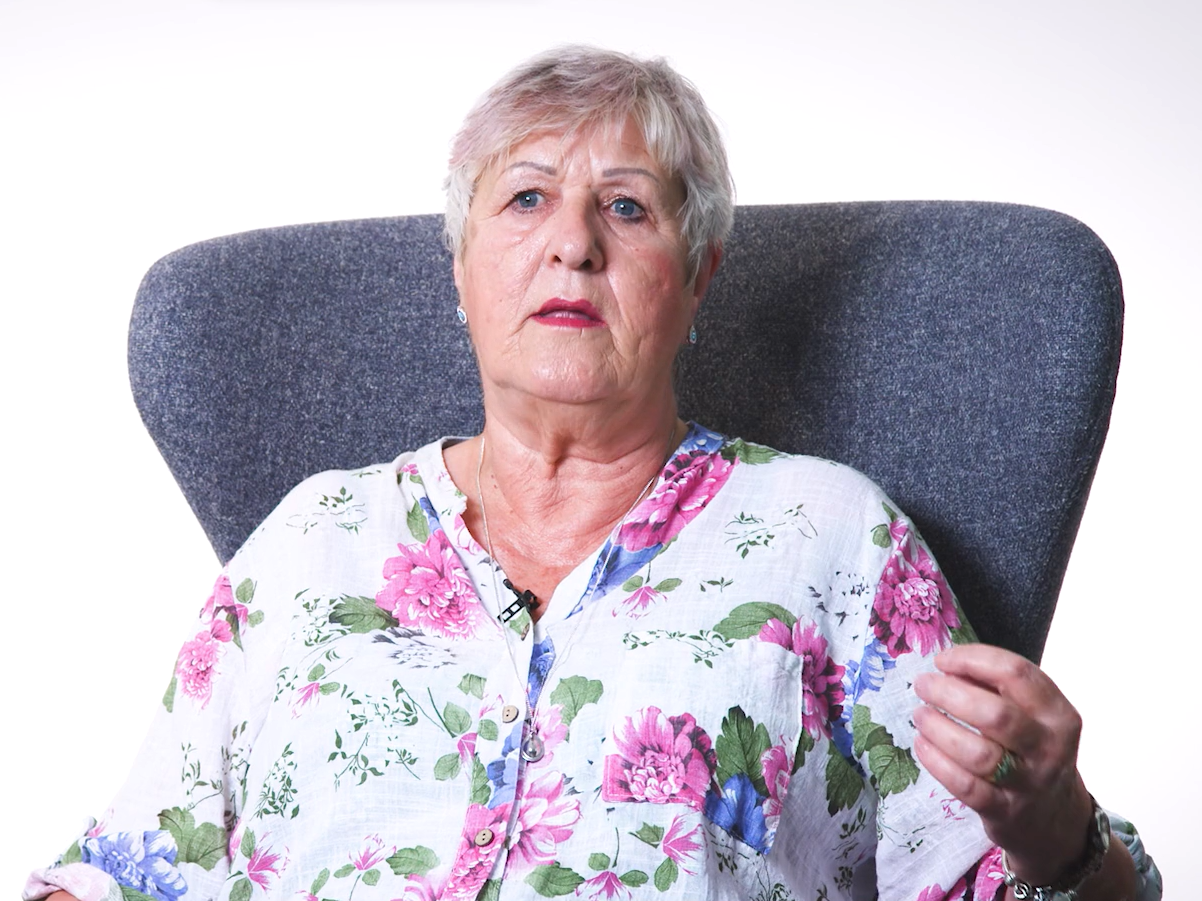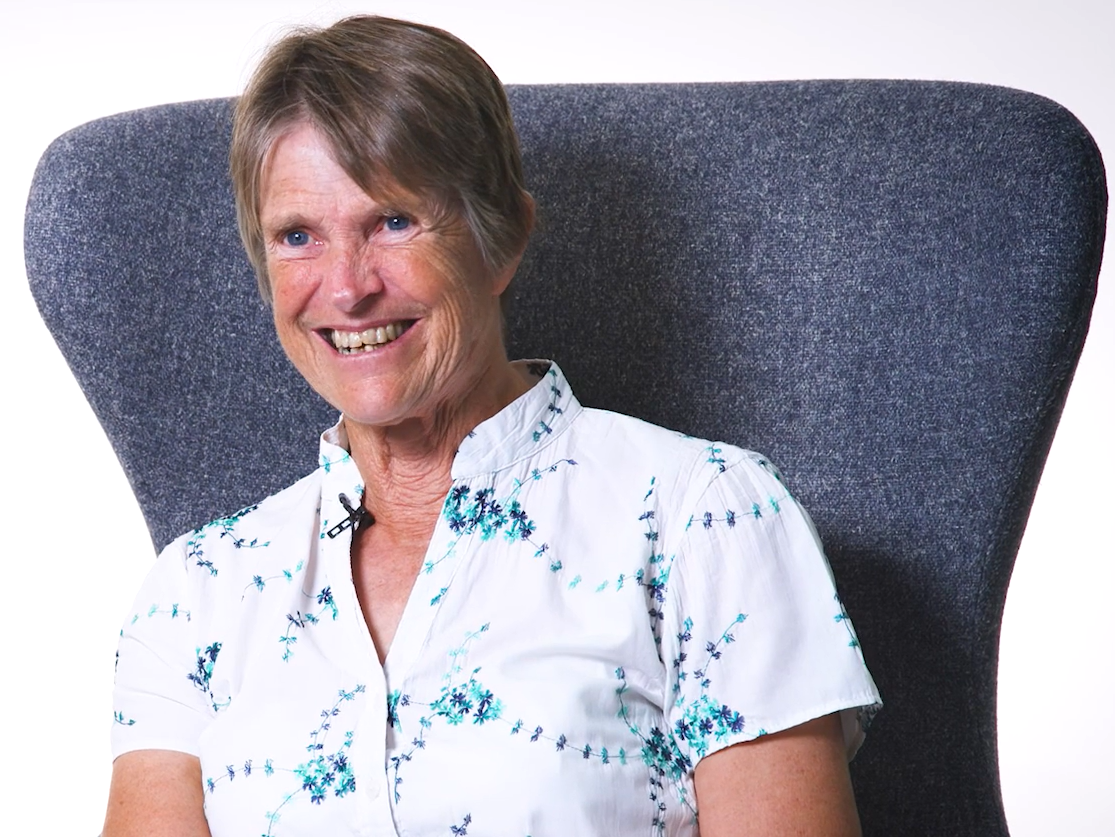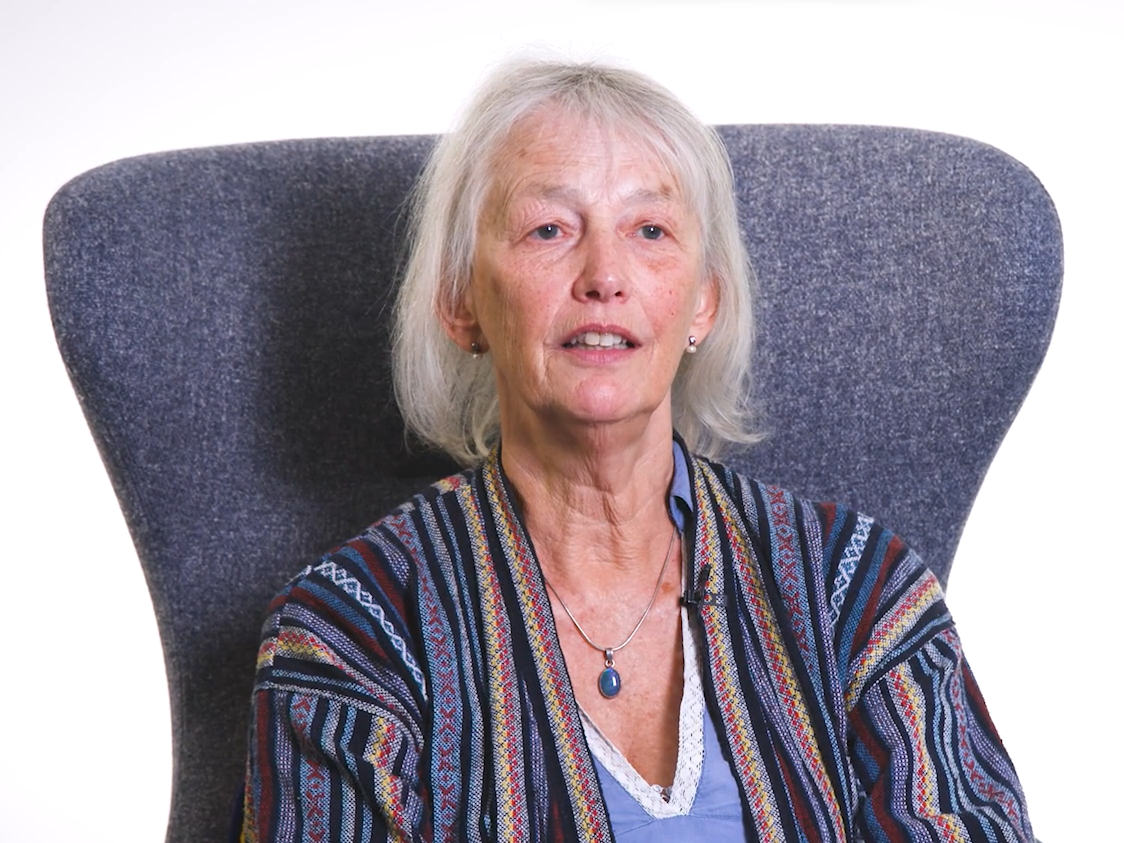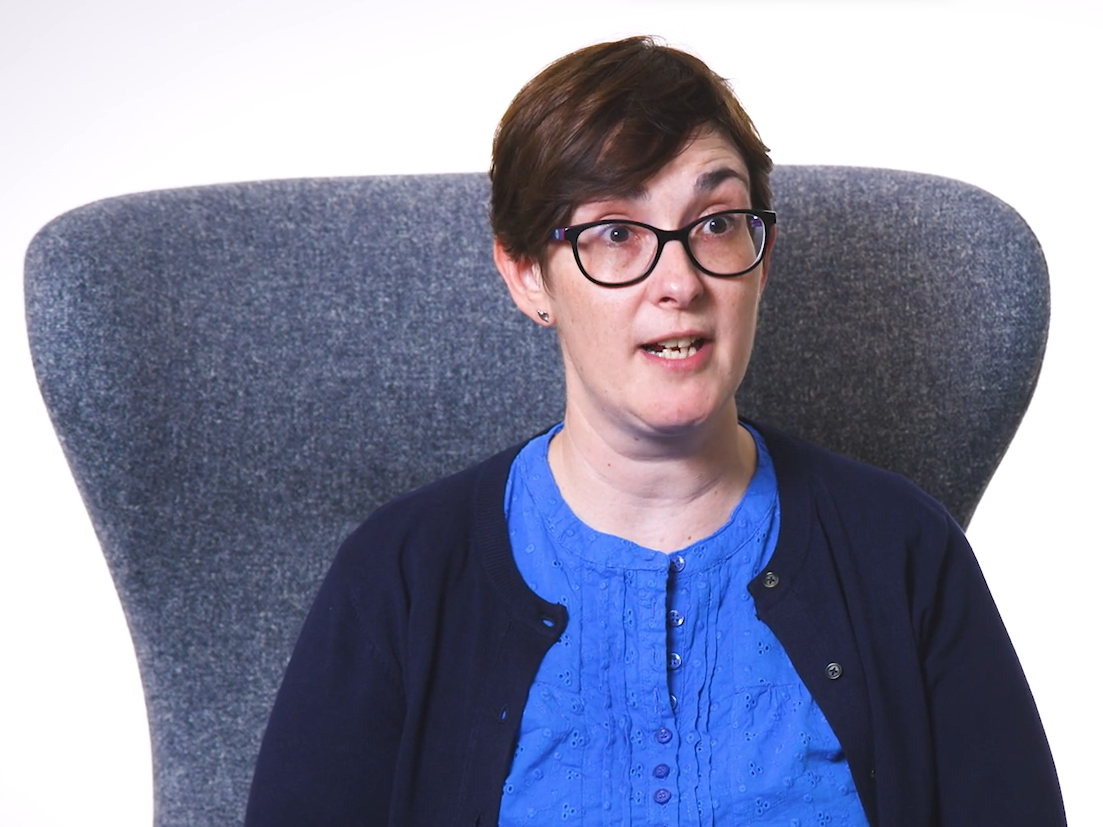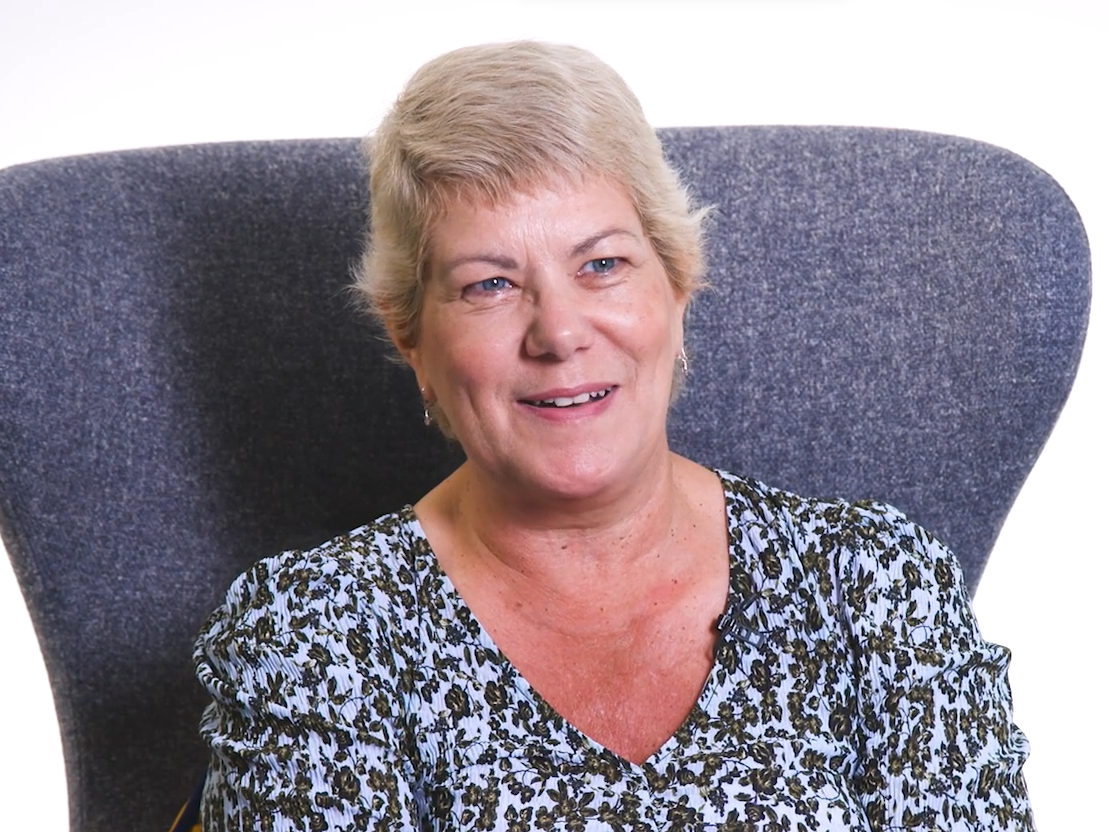
Sharron, Jean, Sally, Jenny and Beccy have all been diagnosed with breast cancer in the last few years.
In the past they would have been offered broadly similar treatment. But now, thanks to decades of funding from Cancer Research UK and others supporting cutting edge research, we aim to offer personalised precision treatments to people with breast cancer.
The women joined the Cambridge-led Personalised Breast Cancer Programme (PBCP) when they were first diagnosed with breast cancer.
The PBCP is a pioneering research study where breast cancer patients are offered whole genome sequencing of both their normal and tumour DNA. Crucially, the results are available within 12 weeks, often sooner, so the clinical team can immediately use the genetic information alongside clinical data to plan the best treatment for each patient.
In the video they share their experiences of breast cancer and taking part in research.
Sharron
Sharron lives in Haverhill with her husband and daughter. She works at Addenbrooke’s in the Property Management Department and in her spare time enjoys walking, cooking and spending time with her family. In 2022, after finding a lump, she was diagnosed with two subtypes of breast cancer and is still undergoing treatment.
On taking part in research, she says: “I wasn’t expecting to be invited to do any research, I just thought research was done on other people, I didn’t think it would be done on just a normal breast cancer patient.
“The more people that do research the better it will be.”
Jean
Jean, a retired paramedic, enjoys spending time with her children and grandchildren. She was diagnosed with grade 3 ER/PR positive HER2 negative breast cancer following a mammogram and blood test in 2022 and is having ongoing treatment.
“When I was asked to take part in the trial it was a no brainer. I was told I would just have a tissue sample taken. Well, I was under anaesthetic then, they were going to take it all away, why not use it for research.
“When I found out about the CHEK2 gene mutation, I was a bit concerned and I wondered whether this is going to increase my chances of it coming back. But again, I have had complete reassurance, and the team are following up and I am being checked on regularly.” She explained.
“Taking part in the research has helped me with treatment.”
Sally
Sally lives in Great Wilbraham with her husband and their dog and cat. They have two grown up children and two grandchildren. She is a keen hockey player, has been involved in International Masters Hockey for over 10 years, and is currently captain of the first over 70s international team. She was diagnosed with grade 3, ER/PR negative, HER2 positive breast cancer in June 2021. She has completed her treatment but is taking medication to manage the side effects of chemotherapy.
“I would encourage anybody to go down that route if they ever got asked to do it because, without the research, we’re not going to move on and make the progress we are making.”
Jenny
Jenny lives on her own and has grown up children and two grandchildren. She works as a psychotherapist and enjoys dancing, singing, gardening and swimming in her spare time. She was diagnosed with ER/HER2 positive breast cancer with metastatic lung nodules in 2022 following her last routine mammogram at age 70 and is still undergoing treatment.
Reflecting on joining the PBCP she said: “It felt like it was worth it and what I was really pleased about what was to get the results that it wasn’t hereditary in my family situation because my daughter was naturally very worried.”
Beccy
Beccy works in a contract research organisation testing clinical trial samples. She lives in Fordham with her husband, dog and horse. In 2017 she was diagnosed with grade 3 triple negative breast cancer. As well as joining the Personalised Breast Cancer Programme she also took part in the PARTNER trial and a couple of MRI trials and has now completed her treatment.
“During my diagnosis I joined the Personalised Breast Cancer Programme so that programme took some of the tissue from my tumours to see where my cancer had come from and actually, I learnt that I had the BRCA1 gene mutation so I decided to go for a double mastectomy.”
“My breast cancer was five years ago but five years ago before my breast cancer, there were people doing these clinical trials and my treatment would’ve been adapted because of the trials those people would’ve taken.
“So, for the future of breast cancer, I think research is really important.”
We are most grateful to Sharron, Jean, Sally, Jenny and Beccy for sharing their stories.
The programme – the main clinical study of the Precision Breast Cancer Institute (PBCI), part of the Cancer Research UK Cambridge Centre at the University of Cambridge – has also been rolled out to Oxford, Colchester and Ipswich.
The PBCI will move into the Cambridge Cancer Research Hospital when the new specialist hospital for the East of England opens on the Cambridge Biomedical Campus.
The new hospital will change the story of cancer, breaking down barriers between laboratory and clinic, and enabling patients to benefit from the latest innovations in cancer science.
Find out more about precision breast cancer research in Cambridge:
Listen to our CRUK Cambridge Centre podcast:
A patient's perspective on the Personalised Breast Cancer Programme with Prof Jean Abraham and patient Catharine Scott.
A breast cancer clinician perspective with clinical research associates Rebecca Lucey and Lynsey Drewett from the Precision Breast Cancer Institute.
Watch Professor Jean Abraham talk about PBCP and Precision Breast Cancer Medicine for a Cambridge Biomedical Campus on Virtual Tour webinar recorded in November 2021.
Take part in research:
For information on how to take part in our breast cancer research, please contact info@breast.cancer.cam.ac.uk. If you are interested in joining one of our patient groups to help shape our future research and trials, please contact engagement@cancer.cam.ac.uk.














